Instant Energy Foods for Athletes: Unmask The Power
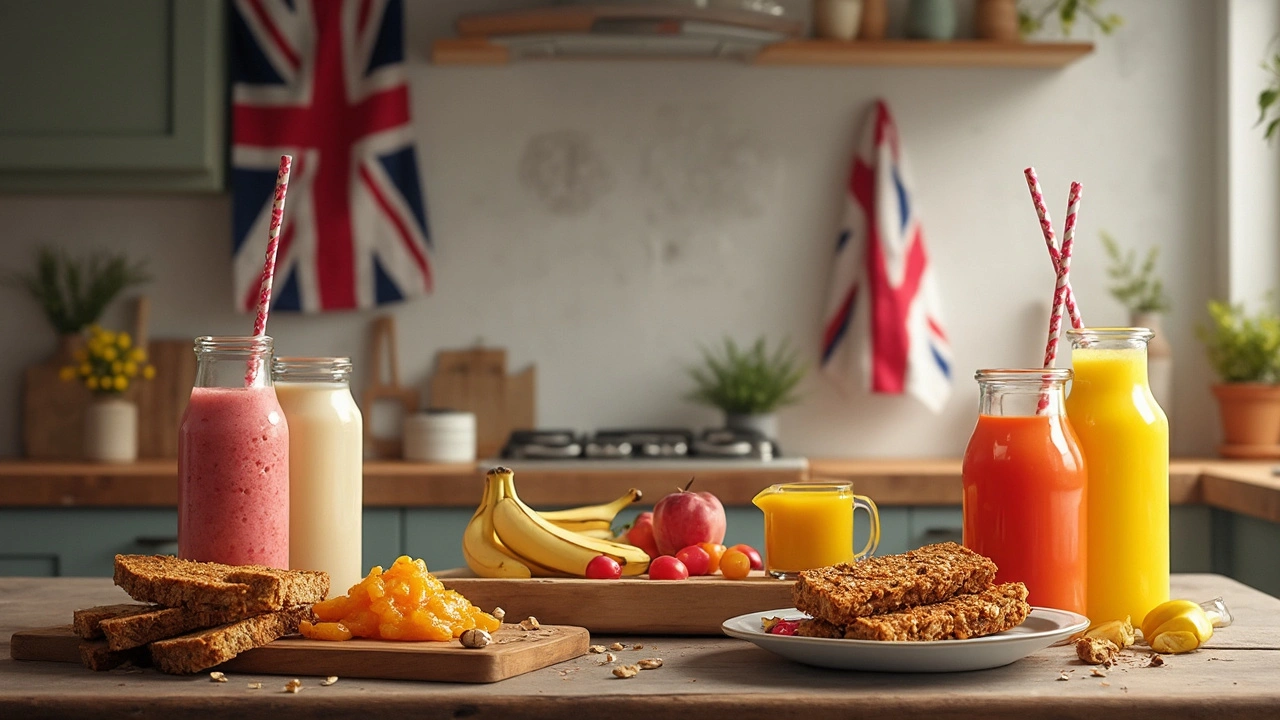
If you're an athlete, you know those moments when you need energy fast—like right before that big game or during the final leg of a marathon. Guess what? You don't always have to reach for a sugary snack to get that quick boost. There are loads of foods that can do the trick while keeping your body fueled in a healthy way.
Let's talk bananas for a second. These yellow wonders are like nature's energy bars, packed with carbs and potassium that help replenish what you lose after breaking a sweat. Plus, they're super easy to grab on the go.
But it's not all about solid food. There’s a whole world of energy drinks specifically crafted for athletes. These aren't your average sugar-loaded sodas. Good energy drinks often include balanced electrolytes and just enough caffeine to perk you up without the jitters. It’s all about finding the right blend that works for you.
Carbohydrates are another key player here. Munching on something like a granola bar or even a slice of whole-grain bread can do wonders. These are slow-releasing carbs, giving you a steady stream of energy rather than a quick shot and crash. And don’t forget about protein! Even a small serving of Greek yogurt can keep you fueled post-workout.
- Understanding Energy Needs
- Top Instant Energy Foods
- Energy Drinks: What to Look for
- Practical Tips for Athletes
Understanding Energy Needs
Ever feel like you’re on the verge of running out of fuel during a workout? That’s your body crying out for instant energy foods. But it's not just about stuffing in random snacks; it’s about understanding what your body needs and why.
Your body primarily runs on carbohydrates, proteins, and fats, all of which provide energy. But during physical activity, carbs are your best friend because they convert quickly into glucose—your body’s preferred energy source. That's why eating something rich in carbs before a game or workout can make all the difference in performance.
To keep your energy levels in check, it's important to factor in the type and duration of exercise you're doing. For short, high-intensity workouts, quick-digesting carbs are key. But for longer, endurance activities, you might want a mix of carbs and some proteins to maintain energy over time. Think of it like a car. Short races need a burst of gas, while long-distance drives benefit from a full tank and cruise control.
Another thing to consider is hydration. Even the best energy drinks won’t help if you’re dehydrated. Water helps transport nutrients throughout your body and regulates your temperature while you sweat it out.
Let’s throw in some numbers for a better picture:
| Activity | Carbs Needed | Protein Needed |
|---|---|---|
| Short, Intense Workout | 30-60g/hour | 10-20g/hour |
| Endurance Event | 60-90g/hour | 15-25g/hour |
These aren’t strict rules but guidelines to help you start understanding your body’s energy needs. Tailor them to suit your metabolism, workout intensity, and any specific goals you may have.
Top Instant Energy Foods
Athletes, listen up! If you’re looking for quick energy, you don't have to settle for sugary snacks or drinks. Instant energy foods can be both delicious and effective without a sugar crash later.
First up, we’ve got bananas. They're not just a favorite among tennis players for nothing. Full of fast-acting carbs and potassium, bananas can boost your energy in minutes. Plus, they're super easy to carry and peel.
Another powerhouse? Oats. These might seem like a breakfast-only deal, but a small portion in the form of an oat bar or overnight oats is packed with carbs and a bit of protein. This mix provides not just instant energy but some longer-lasting fuel too.
For a quick refill on natural sugar and fiber, reach for dates. They’re nature’s candy with high carb content and vitamins that help keep that energy steady. Plus, they fit easily in any gear bag.
Now, let’s not forget nuts, specifically almonds. These little guys are filled with protein and healthy fats. While they might not spike your energy instantly like carbs, they do keep you going over time, which is helpful for endurance activities.
Here’s an interesting tidbit — some athletes swear by beetroot juice for its nitrate content, which can improve oxygen and blood flow. A small glass before a workout or competition could make a noticeable difference.
- Bananas - Quick carbs, great for fast energy and easy to take along
- Oats - Provides steady carbs and protein for sustained energy
- Dates - Natural sugar boost with vitamins and fiber
- Almonds - Protein and healthy fats for endurance
- Beetroot juice - Improves oxygen flow
Keen on maximizing these energy sources? Mix and match them according to your activity. Want more mileage from your run? Have a banana and a few almonds. Prepping for a demanding gym session? Try oats with dates for both fast and lasting energy.

Energy Drinks: What to Look for
Finding the right energy drink for athletes isn't just about picking something that tastes good. There are key factors to consider that can make a big difference in performance and recovery. Here's what you need to know.
First off, check the label for electrolytes. These are the minerals like sodium, potassium, and magnesium that help maintain your body's fluid balance. Electrolytes are crucial, especially if you're sweating buckets during a marathon or an intense workout.
Another important ingredient? Carbs. Not all sugary things are bad, particularly if you're in need of an energy boost. Look for drinks that include glucose or maltodextrin, as these provide quick energy hits that keep you going longer.
But watch out for too much caffeine. While a small amount can give you a mental boost and help with endurance, going overboard can lead to jitters or even dehydration. According to the American College of Sports Medicine, it’s best to stick to about 3-6 mg of caffeine per kilogram of body weight.
"Moderation is key when it comes to caffeine intake in energy drinks," says Dr. Sarah Knight, a sports nutrition specialist.
Let's not forget about vitamins. Some energy drinks pack in a punch of B vitamins, which can help convert food into energy more efficiently. These are particularly useful when you're in the middle of a tough training schedule.
Here's a quick checklist for when you're picking out an energy drink:
- Electrolyte content for hydration
- Controlled caffeine levels
- Carbohydrates for quick energy
- Added vitamins like B vitamins
Avoid drinks with excessive artificial ingredients or too much sugar that might lead to an energy crash. Keeping these tips in mind, you can confidently pick out an energy drink that supports your athletic goals and keeps you on your feet longer.
Practical Tips for Athletes
Staying energized during tough workouts or games is super important. So, let's break down some handy tips that'll make keeping your energy up a whole lot easier.
First off, timing is everything. Eating a small, carb-rich meal 30 to 60 minutes before hitting the field can give you that instant energy boost. Think along the lines of a banana or some whole-grain toast with peanut butter. Carbs are your best friend here.
Hydration is key, but it's not just about water. Try adding some electrolytes into the mix, especially if you're sweating a lot. This can help keep muscle cramps at bay and maintain energy levels. Many energy drinks cater to this need, so check labels for the right balance.
Post-workout, recovery is crucial. Your body needs to refuel and repair, so aim to eat within 30 minutes after your session. A combo of carbs and protein works wonders—like Greek yogurt with a sprinkle of granola.
Energy drinks can be helpful too, but don’t overdo them. A small sip can be effective, especially if you need a quick caffeine pick-me-up. But too much caffeine isn't good, so know your limits.
Setting a routine can really help. Get into the habit of preparing your snacks and drink ahead of time. It's one less thing to worry about on the day of your practice or game.
Lastly, listen to your body. Everyone’s different, so what works for your teammate might not be your jam. Try different foods and drinks to find your perfect athlete nutrition formula.
- Grab a carb-loaded snack an hour before activity.
- Hydrate with electrolytes, especially in hot conditions.
- Eat a recovery meal within 30 minutes post-exercise.
- Use energy drinks wisely, focusing on balance rather than caffeine overload.

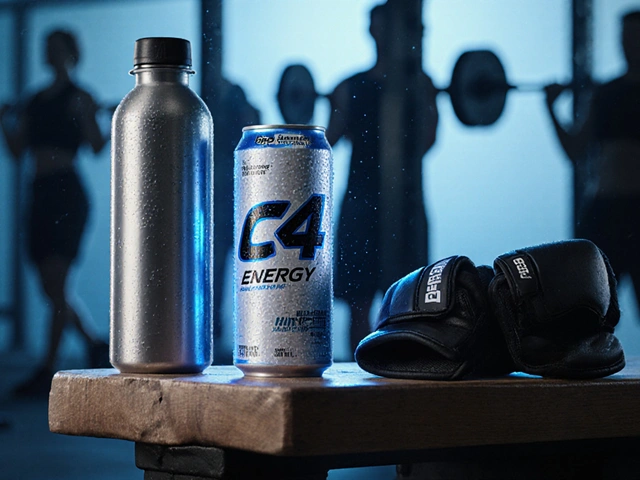
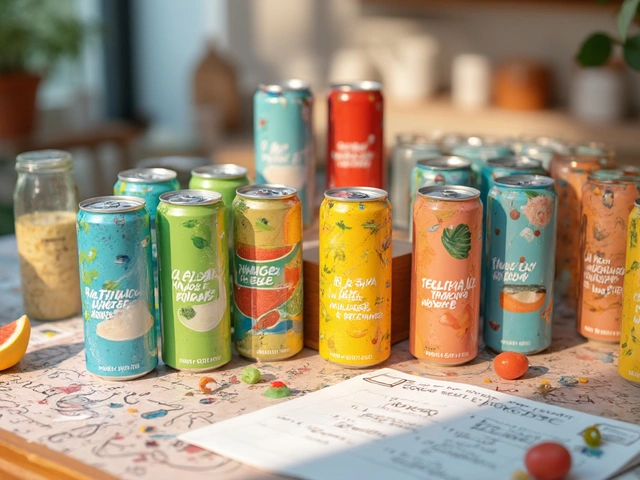
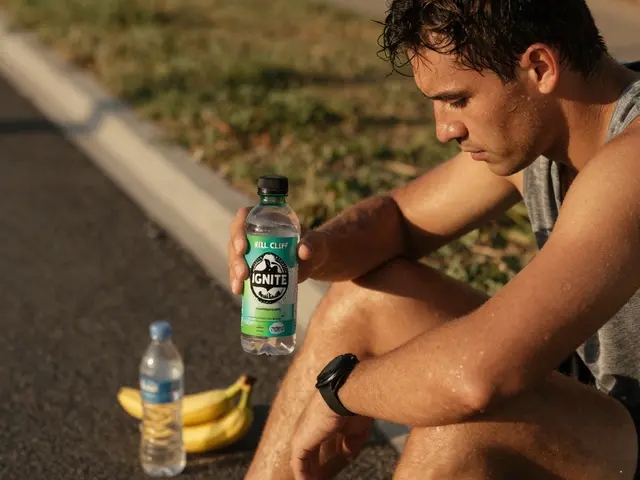
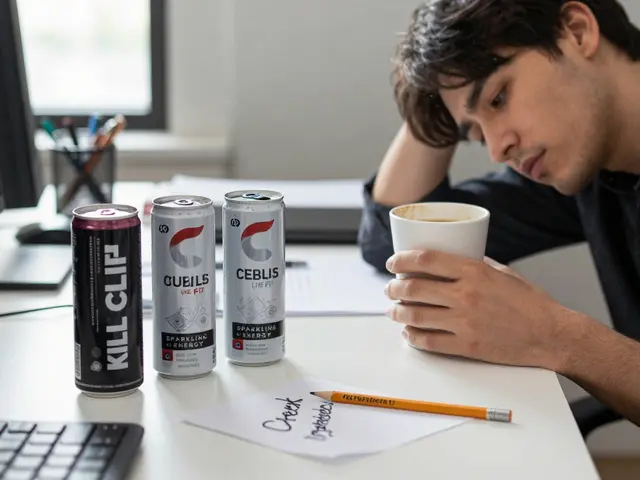

Comments (10)
Diwakar Pandey
18 Jul 2025
Really interesting topic, especially considering how critical nutrition is for athletes to perform at their best. I think many people overlook how timing and type of energy intake impact overall performance. Carbs are definitely key, but it also depends on the intensity and duration of the workout or game.
I've noticed some athletes swear by energy gels or bars during endurance events, while others prefer natural options like bananas or honey. The science behind quick-digesting carbs versus complex carbs is quite fascinating because the body reacts to them differently.
Would love to see some examples of energizing drinks that really work without causing a crash later. Also, mindfulness about hydration alongside energy seems crucial but often under-discussed. Great post overall and a reminder to fuel smart, not just eat whatever is convenient!
Bob Buthune
22 Jul 2025
Wow, this post really hits home for me 🏃♂️! The emphasis on instant energy foods reminds me of the countless times I’ve had to grab an energy bar or a quick smoothie right before practice. It’s amazing how those little snacks can make such a big difference in stamina and focus for the entirety of the session.
One thing I wish more athletes talked about is how sugar content plays a role - balancing fast energy without tipping over into sugar crashes. 🍫⚡ Maybe the science behind it can give us some clarity on how to master that balance?
Also, would love to hear about any underrated energy options that folks might have tried. Personally, I’m curious about natural alternatives that don’t spike insulin too hard but keep the energy sustained. Thanks for sharing this!
Kasey Drymalla
25 Jul 2025
Honestly, I’m skeptical about most of these so-called energy foods. Some corporate interests probably push stuff loaded with sugars and additives disguised as 'performance enhancers'. I bet they want athletes hooked on quick fixes instead of proper nutrition or training.
It's all a marketing scheme to me. You think a granola bar or some energy drink can replace actual hard work and rest? Nah, just fuels you with garbage and sets you up for crash and burn. Stay woke.
Anyone else feel like this is just another way to profit off athletes and regular people desperate to perform better?
Dave Sumner Smith
29 Jul 2025
Couldn't agree more with the skepticism here. Most energy supplements are a sham. They mask fatigue temporarily but do nothing for true endurance or recovery. The real secret is consistent proper diet and rest, which no quick energy food can replace.
Also, keep an eye out for misleading labels claiming 'natural energy' but packed with caffeine or sugar. It’s a rabbit hole of gimmicks designed to exploit athletes.
Let’s stop falling for these quick fixes and focus on real foundations for performance. That’s the real power.
Cait Sporleder
2 Aug 2025
The interface of nutrition science and athletic performance has always fascinated me. This post serves as a wonderful portal to delve deeper into the biochemistry of instant energy foods. For instance, the glycemic index of consumed carbohydrates tells a compelling story about how quickly blood sugar levels rise post ingestion.
Athletes who strategically choose low to moderate glycemic index foods pre-exercise can experience more sustained energy release, avoiding the pitfalls of sudden sugar crashes. Additionally, the inclusion of electrolytes within energizing drinks sustains muscle function and combats dehydration elegantly.
It would be stimulating to explore not only the types of instant energy foods but the crucial timing, quantity, and combinations that optimize athletic output. Thanks for shedding light on such a vibrant topic!
Paul Timms
6 Aug 2025
Great insights all around. To add, I believe athletes should pay equal attention to how their bodies individually respond to specific instant energy foods and drinks. What works wonders for one athlete might not be optimal for another due to variabilities like gut tolerance and metabolic rate.
Also, I find that supplementing carb intake with a moderate amount of protein can extend that energy boost, aiding muscle recovery simultaneously. Hydration is not merely about water but mineral balance, which sometimes is overlooked during quick energy fixes.
Overall, personalization mixed with scientific understanding helps athletes truly unmask the power of their energy sources.
Jeroen Post
10 Aug 2025
Look, everyone’s ignoring the real truth here. The entire sports nutrition industry is a facade, built with hidden agendas to create addictions to sugary quick-fixes. They distract from the genuine natural sources of energy that humanity used for centuries.
There's also the danger of dependence on these artificial energy boosters shifting the body’s own metabolic processes. It’s like they want to control not just what you eat but how you perform. Ever wonder who profits most when you buy those energy bars after every game? Think about it.
Nathaniel Petrovick
14 Aug 2025
Interesting discussion going on here. I think the balance between trusting science and staying wary of marketing influence is delicate but necessary. Athletes should remain informed consumers and critically analyze what they fuel their bodies with, instead of blindly grabbing anything labeled as an energy food or drink.
Also, sharing personal experiences about what energy options seem to work best can build a supportive community for others experimenting with their nutrition on the field or track.
Would love to see more practical tips and user-tested strategies integrated into this thread!
Honey Jonson
15 Aug 2025
Just wanna say, based on my coaching experience, timing is everything when it comes to instant energy foods. Eating too close to intense activity can cause discomfort, while a good 30-45 min lead time with the right snack can feel like magic in performance.
Also, there’s no one-size-fits-all. Athletes gotta experiment with different foods—like blueberries, peanut butter sandwiches, or energy gels—to find their sweet spot. Dehydration makes everything worse, so combining energy snacks with proper fluids is key.
Keep pushing, listen to your body, and don’t get too stressed about minute details. Enjoy the process and improve sustainably.
Destiny Brumbaugh
16 Aug 2025
While all these perspectives are valid, I think we need to be proud of national sports nutrition advances and stop blindly trusting imported gimmicks. Our own natural foods and energy boosters are more than capable of competing on the world stage without added chemicals.
Also, let’s not forget the discipline it takes to maintain nutrition, hydration, and mental toughness without relying too much on quick fixes. Athletes embody the spirit of perseverance and strength, and that should reflect in their eating habits too.
Don’t get fooled by flashy packaging—respect your body and your roots!